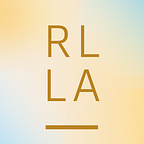The news is a constant source of trauma
Every human at one time or another will experience trauma. All trauma is different and how people react and deal with that trauma is different. Some experiences people go through will lead them to develop PTSD. Each journey through the world of trauma is personal for each individual. Sometimes that can make it even harder to diagnose and treat.
Everyday I read the news all I see is trauma. Gun violence trauma, drug trauma, murder trauma, war trauma. Stories of young girls taken from their front yards or babies murdered by their parents and dumped in land fills. It consumes everything and it slowly picks and pokes at my own past traumas. When things get too dark I have to take a break from it all, but it is difficult not keeping up with current events.
Recently we had a child abuse case that shook our small community. It happened during a time I was on a news and social media break but I still overheard the case from a woman sitting behind me at the diner one morning. Luckily the child in this case was saved from this house of horrors and the evil parties responsible. This child lived but will also now have to live with the emotional and physical scars of what they endured.
How children deal and express trauma is different. Later in life they may develop learning disabilities and even physical ailments from this trauma. Many children who go through trauma and never get the help they need have a higher risk of ending up in the juvenile court system, jail, and falling into substance abuse.
Where does child abuse happen? Unfortunately, the answer is everywhere. You can see on this map from the team at nyrequirements.com the US states with the highest rates of child abuse cases. Although some states like Maine (the highest per capita on this list) have higher rates than others, it still happens everywhere. The signs of abuse in children go beyond physical marks. Children who suddenly withdrawal from activities they love or friends or family they use to love to be around. Children who have sudden bouts of anger or suddenly start doing badly in school. Children who have experienced abuse may also have problems sleeping or reoccurring nightmares. Some may even attempt suicide or self harm. If you are looking for abuse or trauma resources in your area this government child welfare page is a great place to start.
